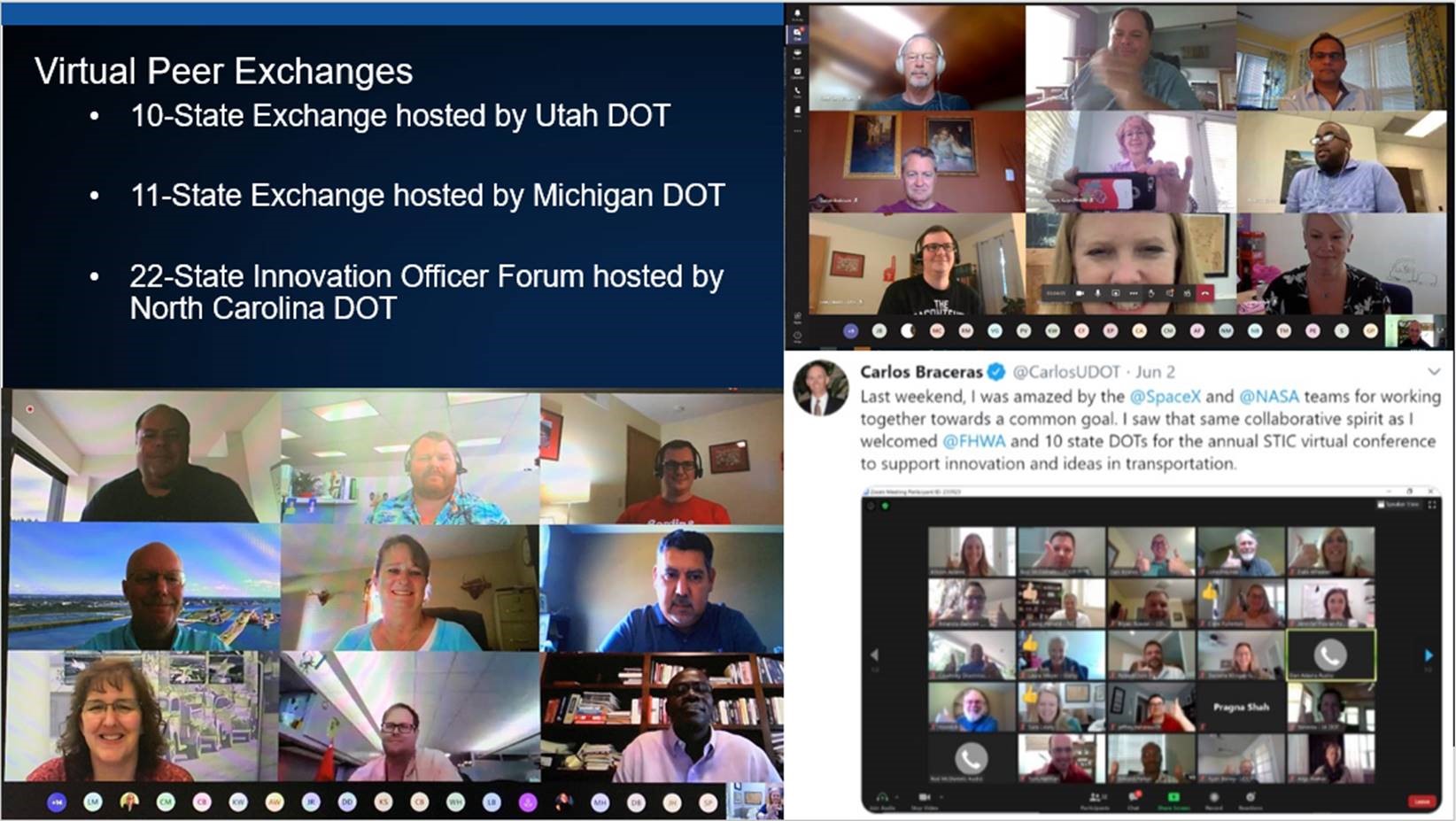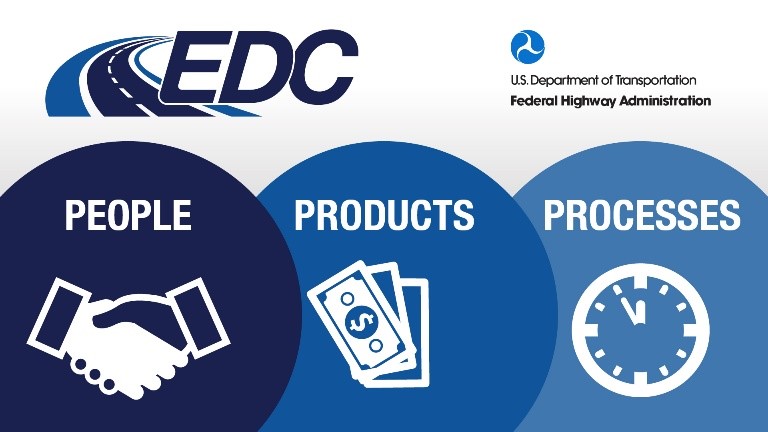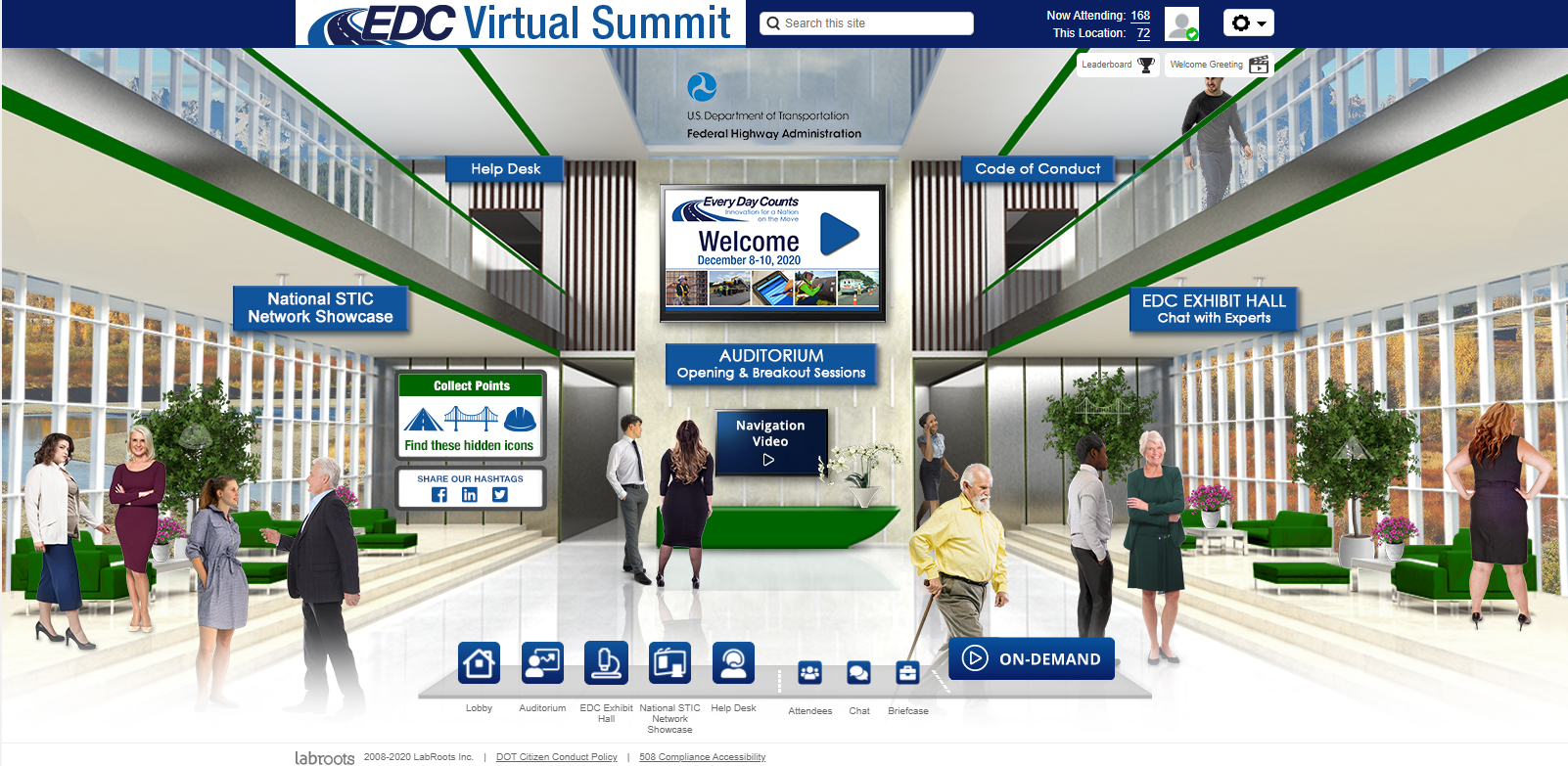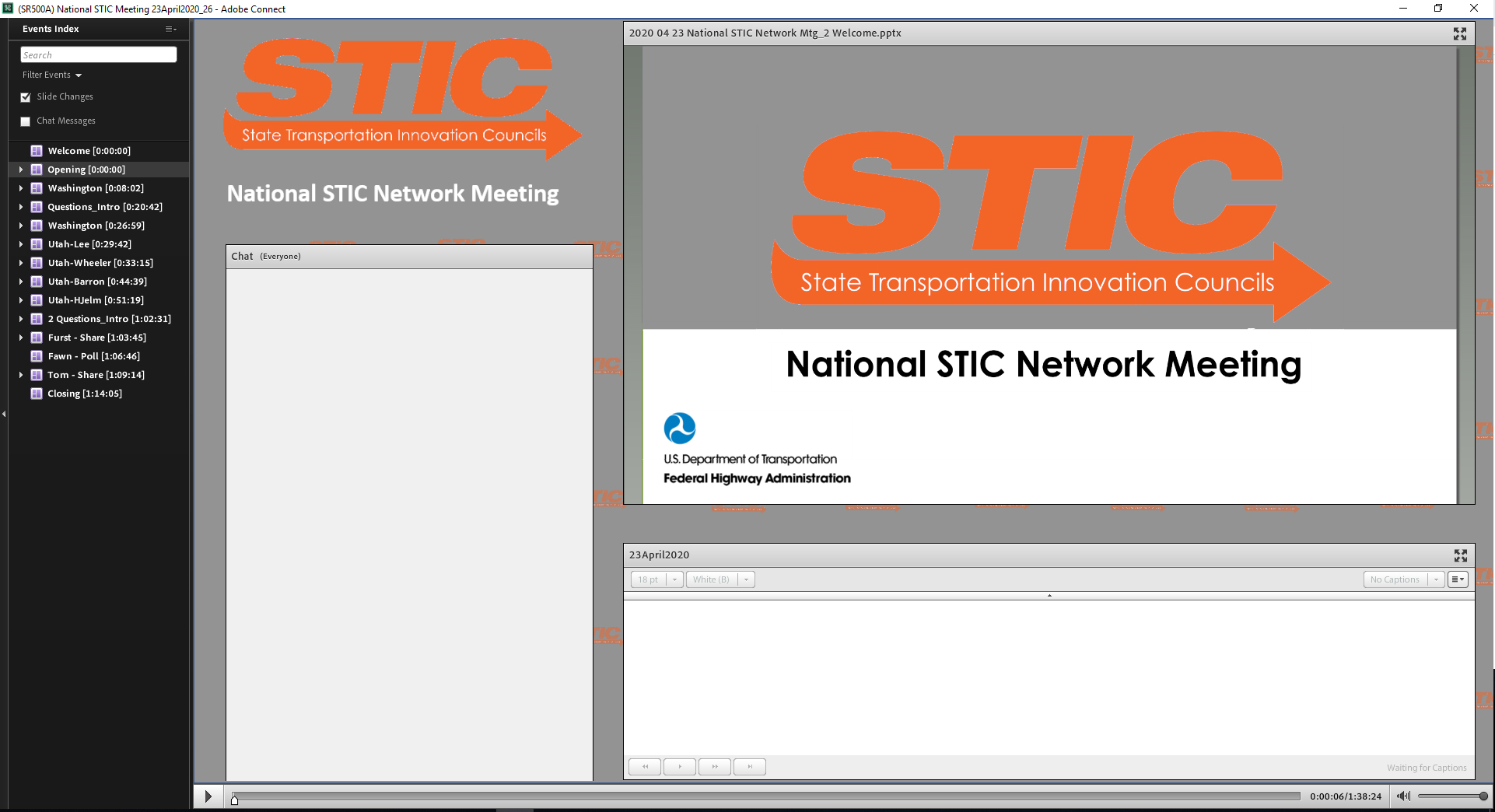Meaningful Stakeholder Engagement in an Ever-Evolving Environment
In late 2019, the Center for Accelerating Innovation (CAI) hosted an in-person State Innovators Forum, which convened the emerging cadre of State department of transportation (DOT) Innovation Officers to share their experiences, challenges and struggles in a relatively new job position. Looking to build on the success of this event, CAI planned a sequel Innovation Forum to be hosted by the North Carolina DOT in June 2020, but needed to employ the essential skill of being nimble to quickly redesign and conduct the event for a virtual setting.
Among the creative hallmarks of the virtual forum was the use of an “open” agenda, where the participants picked the discussion topics among a list of themes such as risk management, fostering and sustaining the culture, and telling your story. This format provided the creative space for more than 20 Innovation Officers to address the issues most important to them. It also helped ensure their full investment in the discussions, as compared to a more linear method of conducting peer-to-peer events.
| Culture | Workforce | Disruption | Risk Management | Telling Your Story |
|---|---|---|---|---|
| Culture Shift: Recent innovations in a world of uncertainty. |
New Ideas: Crowdsourcing tools for employee outreach/ideas |
Tech-Savviness in Today’s Climate: Courthouse filings, stamping design docs, electronic approvals, e-bidding, public involvement, etc. |
Funding: What are the risks to innovating if major funding diminishes? |
Navigation Tools: Pathway for innovation Update/Feedback |
| Space Making Revisited: Do YOU have the right space to share and answer each other’s questions? How are you making space for new ideas? |
Day-to-Day Operations Inspection innovations? Determining crew sizes? Material certification processes? |
Innovation Resiliency What happens when leadership/ priorities change? |
Capturing Opportunity: How are today’s solutions being captured and assessed for the future? |
Building Partnerships: Innovation peer exchanges, using communication tools, ways to share. |
CAI also helped the Utah and Michigan DOTs plan and facilitate their respective June and August 2020 innovation peer exchanges. More than ten different States attended each event to share how their innovation programs are structured; describe notable practices for communicating innovation success stories; discuss ways to engage their State Transportation Innovation Council (STIC); and identify their top challenges in advancing a culture of innovation.
Through these events, two important lessons became evident:
- First, despite some understandable early concerns about how effective a new model for peer-to-peer events would be, it was found that virtual delivery can be quite engaging when both hosts and participants lean into the format and use creativity when planning the time. Using a participant-driven agenda, icebreakers, polling tools, trivia challenges, and short “exercise breaks” all help combat screen fatigue in this environment.
- Second, the stage CAI set with their initial earlier Innovation Forums quickly led to the Innovation Officers becoming a self-sustaining community that maintains regular contact to support and mentor each other. For example, the Idaho Transportation Department hosted a research and innovation peer exchange in September that advanced and expanded on the topics discussed at the previous events.
Making colleagues and co-workers more aware of issues and being accessible to each other to lean on helped sustain the STIC/Innovators Network. The ability for not only the CAI team, but also its cohorts in the field, to pivot into a virtual meeting environment demonstrated the resiliency and tenacity of this group. Through the challenges-turned-successes in 2020, the CAI team and its partners experienced growth and opportunity through a virtual environment. Now, the team can reach and connect more innovators, making more technology transfer connections than in the past.


![Quote that reads, “Great job on the execution of the EDC Summit. The platform is easy to navigate and the content is terrific! Congratulations! I know it is a lot of really hard work to pull off a high quality virtual meeting, so kudos to [FHWA].” -- AASHTO Executive EDC Participant](img/edc_quote.jpg)

